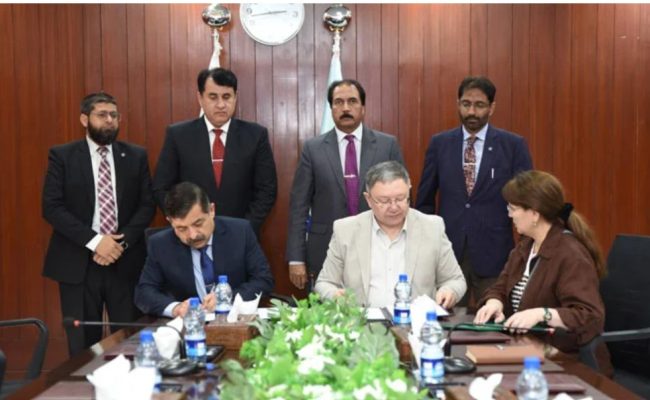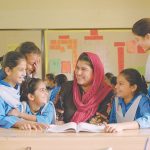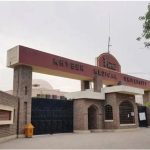In a significant step toward international collaboration, the National University of Modern Languages (NUML), Islamabad, has signed two key cooperation agreements with prestigious universities in Kazakhstan. As NUML strengthens academic ties with global institutions, this strategic move is set to enhance academic collaboration, faculty exchange, and joint research initiatives.
As part of this initiative, NUML signed a Letter of Interest with Shokan Ualikhanov Kokshetau University in Kokshetau, Kazakhstan. The agreement marks a forward-looking collaboration focusing on faculty exchange, joint research, academic innovation, and capacity-building in higher education. The signing ceremony was led by Rector NUML, Maj Gen (R) Shahid Mahmood Kayani, and Chairman of the Board-Rector of Sh. Ualikhanov Kokshetau University, Mr. M.K. Syrlybayev.
This partnership is designed to strengthen cooperation in education and scientific research by facilitating the training of highly qualified specialists, encouraging collaborative publications, and co-hosting international academic seminars and conferences. The initiative will also open doors for students and faculty to engage in international mobility programs, enhancing NUML’s global outreach.
With this agreement, NUML strengthens academic ties not only in Central Asia but also positions itself as a proactive institution in forming meaningful global alliances. The university aims to leverage this partnership to promote innovation in teaching methodologies and expand research networks in diverse fields including linguistics, regional studies, and international relations.
A second cooperation pact with another leading Kazakh university is also in the pipeline, aiming to further institutional partnerships that align with NUML’s strategic goal of internationalisation. These agreements are expected to create long-term impact by increasing collaborative research outputs and providing exposure to international academic standards.
Through these new engagements, NUML strengthens academic ties by acting as a bridge between Pakistani and Central Asian higher education systems, fostering mutual understanding and promoting educational diplomacy. These agreements are not only symbolic but practical steps toward achieving a globally integrated academic framework for the benefit of students, researchers, and faculty members.
By continuing to invest in cross-border academic collaboration, NUML strengthens academic ties and reaffirms its vision of becoming a globally recognized center for knowledge, cultural exchange, and intellectual growth.







